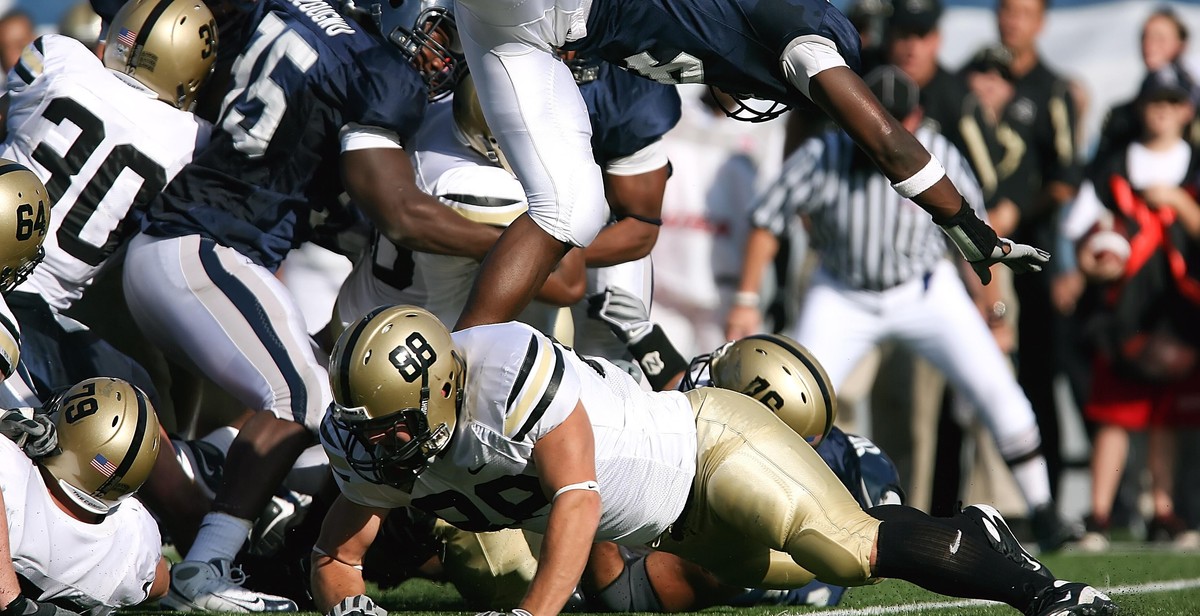How to Build Team Chemistry in Rugby: Fostering Cohesion and Collaboration
Rugby is a sport that requires a high level of teamwork and collaboration. It is not just about individual performance, but also about how well the team works together. In order to succeed in rugby, it is important to build team chemistry and foster a sense of cohesion among the players.
Why Team Chemistry is Important in Rugby?
Team chemistry is crucial in rugby for a number of reasons. First, it helps to create a sense of trust and reliability among the players. When players trust each other, they are more likely to take risks and work together to achieve their goals. Second, team chemistry helps to create a positive team culture, where players are supportive of each other and work towards a common goal. This can lead to better communication and collaboration on the field.
Third, team chemistry can help to improve performance on the field. When players are comfortable with each other, they are more likely to anticipate each other’s movements and work together to make plays. This can lead to a more effective and cohesive team.
Overall, building team chemistry is essential for success in rugby. In the following sections, we will discuss some strategies for fostering team cohesion and collaboration.

Creating a Positive Team Culture
Building a positive team culture is essential for fostering cohesion and collaboration within a rugby team. A positive team culture helps to establish trust, respect, and accountability among team members. Here are two key strategies to create a positive team culture:
Establishing Core Values
Establishing core values is the foundation of building a positive team culture. Core values are the guiding principles that define the team’s beliefs and behaviors. They help to create a shared sense of purpose and direction among team members. When establishing core values, it is important to involve the entire team in the process. This ensures that everyone is invested in the values and understands their importance.
Core values should be specific and measurable. For example, a rugby team might establish the following core values:
- Respect for teammates, opponents, and officials
- Commitment to training and preparation
- Accountability for actions on and off the field
Once core values are established, they should be integrated into all aspects of the team’s operations. This includes training sessions, team meetings, and match preparation. By consistently emphasizing and reinforcing core values, a positive team culture can be created.
Encouraging Open Communication
Open communication is another key strategy for creating a positive team culture. Open communication involves actively listening to teammates, expressing opinions and ideas, and providing feedback in a constructive manner. When team members feel comfortable communicating openly with one another, trust and respect are established.
One way to encourage open communication is through regular team meetings. Team meetings provide an opportunity for team members to discuss any issues or concerns in a safe and supportive environment. It is important to establish ground rules for team meetings, such as respecting each other’s opinions and avoiding personal attacks.
Another way to encourage open communication is through team-building exercises. Team-building exercises help to develop trust and communication skills among team members. They can also be a fun way to break up the monotony of training sessions.
| Key Takeaways |
|---|
| Establishing core values is essential for building a positive team culture. |
| Core values should be specific and measurable. |
| Open communication is key to establishing trust and respect among team members. |
| Team meetings and team-building exercises are effective ways to encourage open communication. |

Developing Relationships
Building trust and respect among team members is crucial to fostering team chemistry in rugby. When players trust and respect each other, they are more likely to communicate effectively, work collaboratively, and support each other on and off the field.
Building Trust and Respect
One way to build trust and respect is to encourage open communication among team members. This means creating an environment where players feel comfortable expressing their thoughts and feelings, and where they feel heard and understood. As a coach or team leader, you can facilitate this by scheduling regular team meetings or one-on-one check-ins with players.
Another way to build trust and respect is to lead by example. This means demonstrating honesty, integrity, and accountability in your own actions and decisions, and holding yourself and others accountable for their commitments. When players see that you are reliable and trustworthy, they are more likely to emulate those qualities themselves.
Creating Opportunities for Bonding
Creating opportunities for bonding is also important for building team chemistry in rugby. When players feel connected to each other off the field, they are more likely to work well together on the field.
One way to create opportunities for bonding is to schedule team-building activities outside of practice and games. This can include things like team dinners, movie nights, or community service projects. These activities give players a chance to get to know each other on a personal level and build relationships based on shared experiences.
Another way to create opportunities for bonding is to encourage players to spend time together outside of organized team activities. This can include things like going to the gym together, grabbing coffee or lunch, or hanging out outside of practice or games.
- Encourage open communication among team members
- Lead by example to build trust and respect
- Schedule team-building activities outside of practice and games
- Encourage players to spend time together outside of organized team activities
| Benefits of Building Relationships |
|---|
| Improved communication and collaboration |
| Increased trust and respect among team members |
| Stronger sense of team identity and purpose |
| More resilient and adaptable team culture |

Encouraging Collaboration
Collaboration is a crucial aspect of building team chemistry in rugby. When players work together towards a common goal, they are more likely to achieve success on the pitch. Here are some tips for encouraging collaboration within your team:
Establishing Roles and Responsibilities
One of the most important steps in fostering collaboration is to establish clear roles and responsibilities for each team member. By defining each person’s role and outlining their responsibilities, you can ensure that everyone is working towards the same goal and that there is no confusion about who is responsible for what.
You can also encourage collaboration by assigning tasks that require different skill sets to different team members. This will allow everyone to contribute their unique strengths to the team and will help to build a sense of mutual respect and appreciation.
Encouraging Support and Feedback
Another important aspect of fostering collaboration is to encourage support and feedback among team members. By creating a culture of support and encouragement, you can help to build trust and respect among your team members.
Encourage your team to provide feedback to each other on their performance and to offer support and encouragement when things aren’t going well. This will help to build a sense of camaraderie and will help to ensure that everyone is working towards the same goal.
You can also encourage collaboration by setting up team-building activities and exercises. These can include things like team dinners, group outings, or even just informal get-togethers. By providing opportunities for your team members to get to know each other outside of the pitch, you can help to build a sense of camaraderie and teamwork that will translate into success on the pitch.
| Activity | Description |
|---|---|
| Escape Room | A puzzle-solving activity that requires teamwork and communication |
| Paintball | A high-energy activity that requires strategy and teamwork |
| Team Dinner | A relaxed and informal way to get to know each other outside of rugby |
By following these tips, you can encourage collaboration within your rugby team and build a strong sense of teamwork and camaraderie that will translate into success on the pitch.

Fostering Competition
Creating healthy competition is an excellent way to build team chemistry in rugby. It motivates players to push themselves and their teammates to be better. Healthy competition also helps players develop a strong work ethic and a desire to win. Here are some ways to foster competition:
1. Set Goals
Setting team goals is an excellent way to create healthy competition. When everyone is working towards a common goal, players are motivated to work harder and push themselves to achieve it. Set clear, achievable goals and track progress regularly. Celebrate milestones and achievements as a team.
2. Rotate Positions
Rotating positions in practice and games can help players develop a broader skill set and create healthy competition. Encourage players to try different positions and challenge themselves to learn new skills. This will help players understand the game from different perspectives and appreciate the contributions of their teammates.
3. Competition Drills
Incorporate competition drills in practice to create healthy competition. Split the team into smaller groups and have them compete against each other in various drills. This will help players develop a competitive mindset and also help them work on specific skills.
4. Encouraging Accountability
Encouraging accountability is another way to foster competition. When players are held accountable for their actions, they are more likely to work harder and push themselves to be better. Encourage players to take responsibility for their mistakes and learn from them. This will help create a culture of accountability and continuous improvement.
Overall, fostering healthy competition and encouraging accountability are essential in building team chemistry in rugby. When players are motivated to work hard and push themselves, they are more likely to develop strong bonds with their teammates and achieve success together.

Conclusion
Building team chemistry in rugby is essential for success on the field. It requires effort from all members of the team, from the coaching staff to the players themselves. By fostering cohesion and collaboration, a team can develop a strong bond that will carry them through tough times and lead to victory.
The Importance of Communication
Effective communication is key to building team chemistry. Players need to be able to communicate with each other both on and off the field. When players communicate well, they can anticipate each other’s moves, make split-second decisions, and adjust quickly to changing game situations.
The Role of Leadership
Leadership is also crucial in building team chemistry. Coaches and team captains need to set the tone for the team and lead by example. They should encourage open communication, foster a positive team culture, and hold everyone accountable for their actions both on and off the field.
The Power of Teamwork
Finally, teamwork is the foundation of team chemistry. Players need to understand their roles and work together towards a common goal. They should support each other, celebrate each other’s successes, and learn from each other’s mistakes. When a team is united, they can accomplish anything.
Building team chemistry takes time and effort, but the benefits are well worth it. By fostering cohesion and collaboration, communicating effectively, providing strong leadership, and emphasizing teamwork, a rugby team can achieve great things on the field.
